Einstein : The Person Who Made People Love Physics
Hello Steemian's. Today I bring to you a topic about my greatest scientific hero, Albert Einstein. His contributions to the world of physics can never be matched. In a very young age he achieved so much success that, it makes him my God. Let us visit to know about his contributions in physics.

For over 300 years classical physics was the backbone of the modern civilization before 19th century. Newtonian Mechanics (Classical Mechanics) and Maxwell’s Electromagnetism(Classical Electrodynamics) were the driving forces of the modernization. Newton’s “Philosophae Naturalis Principia Mathematica” is a scientific marvel of all time. This book reflects Newton’s mathematical insight to explain the laws of nature. Maxwell’s four equations in electromagnetism unified magnetism and electricity into a common fundamental interaction called the Electromagnetism and endorsed the world with hi-tech electric machineries.
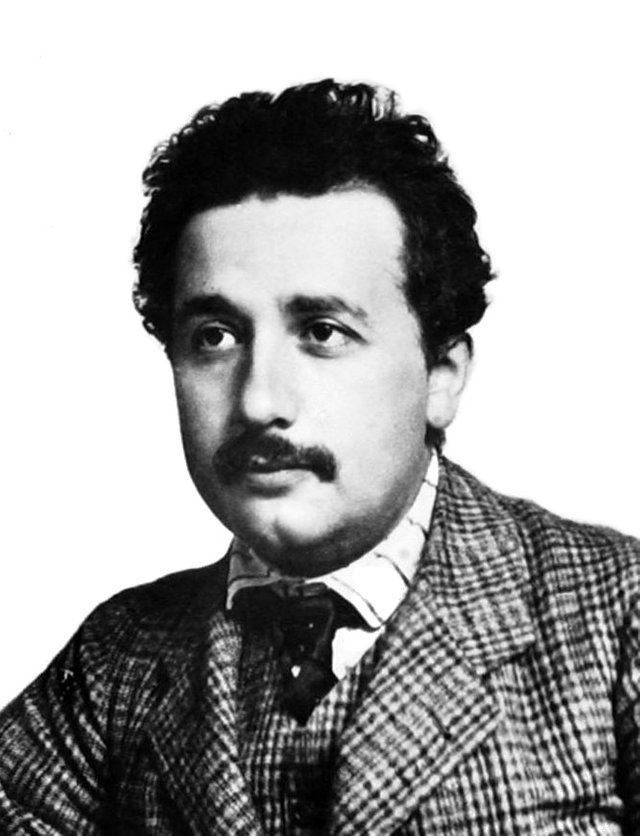
But during the early decades of 20th century some revolutionary ideas evolved which changed not only the course of physics but also the modern civilization to a new horizon. Through the introduction of his theory on quantization of energy, Max Planck in 1900 initiated the era of Modern Physics. This theory postulated that energy is quantized i.e. energy transferred is always in discrete amount and is not continuous. Using this concept he could explain Black Body Radiation which classical physics was unable to explain. A Black Body is an ideal matter which absorbs all the frequencies of light falling
on it and reflects none. That is why it is ideally black. Also, on heating a perfect black body emits maximum energy. Under classical physics this energy was calculated to be infinity. But, it does not radiate infinite amount of energy though maximum. A constant “h” known as the Planck’s constant is named in his honour.
The Miracle Year :
In 1905 which is often known as the Miracle Year in physics community, a 26 year old low profile clerk at the Swiss Patent Office published his three revolutionary papers in the scientific journal “Annalen der Physik” which would change the world history. He was none other than the great Albert Einstein who came to be known as the greatest physicist of all time. These papers contributed substantially to the foundation of modern physics and showed for the first time that reality is much more bizarre than what we perceive.
The first paper was about “Photoelectric Effect” for which he was awarded the Nobel Prize in physics in 1921.In this paper using Planck’s concept he explained that radiant energy i.e. light is quantized which means that light comes in the form of particles known as Photons having zero rest mass and is able to impart momentum to an electron on the metal surface. This concept re-established the corpuscular nature of light (explained earlier by Newton) which was being perceived as an electromagnetic wave as Maxwell’s equations explained. The second paper was about the Brownian Motion. In this paper he explained how the pollen grains move in a zig zag path in water because of their collision with water molecules and confirmed the existence of atoms. He even calculated the size of atoms. His third paper, The Special Theory of Relativity was a groundbreaking one and the most complex one. There was a saying among the people that only a few scientists of that time could fully understand the mathematics of this theory. The postulates of this theory were :
- The laws of physics are the same in all inertial frames (non-accelerating frame) of reference.
It implies the absence of a universal frame of reference which was confirmed in Michelson-Morley Ether experiment in 1887. Suppose, you are juggling a ball in a train moving with a constant velocity (inertial frame). Your intuition may say that the ball has to be left behind you when you throw it up and you have to stretch back to catch the ball. But, from your experience you know that the ball always falls on your hand and you need not stretch back to catch it. This happens because the laws of physics are the same in all inertial frames of reference.
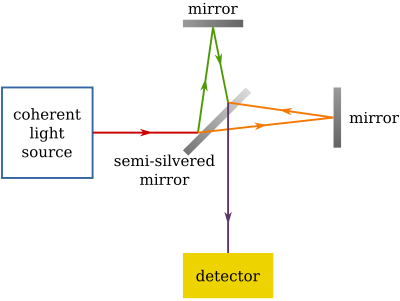
Again suppose, A is moving in a spacecraft with constant velocity in outer space towards B who is stationary (for our convenience of understanding) at some point of space. Now say, all the visible masses of the universe are removed. In such a situation none of them can prove by any experiment who is actually moving and who is stationary. Each of them will find the other one moving towards him. It implies that there is no absolute motion. Every motion is relative. In other words there is no universal frame of referene. Had any one of them been accelerating he would have felt a force which would have proved his state of motion.
The second postulate of Special Relativity was,
- The speed of light is constant in all inertial frames of reference.
This postulate resulted in the conclusion that nothing can move faster than light. In the late 19th century it was found that the relative speed of light is always constant i.e. approximately 3 x 108 m/s irrespective of the observer i.e. whether the observer is moving towards the direction of light or against it.
This postulate was an incredible one and it totally changed human perception about space and time. Einstein showed that space and time are not two distinct entities. Instead they are intertwined into each other as a flexible common fabric known as the “Space-time Continuoum”. Einstein explained that it is the spaceward motion of the observer which reduces his timeward motion which slows down the course of time (time dilation). Space and time adjusts themselves to keep the speed of light constant. As the speed of an object increases space gets contracted and time gets slowed down so that the speed of light remains constant. The more it moves through space, the less it moves through time. This phenomenon is noticeable only when the speed of the observer is comparable to that of light.
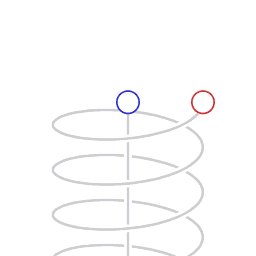
The mathematics of special relativity also implied that the length of an object gets reduced with increase in speed (length contraction) and mass of an objects increases with the increase in speed. All these phenomena has been experimentally proved and have been used in several modern technologies such as the Global Positioning System popularly known as GPS, particle physics etc. Another important implication of this theory was the mass-energy equivalence principle defined by the equation
This equation has been considered as the world’s most famous equation. It means that mass can be converted to energy and vice versa. This equation has been used for realizing nuclear power.
General Relativity :
After proposing the Special Theory of Relativity, Einstein felt that his theory was limited to some special cases i.e. to constant speeds. Einstein felt an obvious need to extend his concept to accelerating motions. It took ten years for Einstein to solve this problem. But, trying to incorporate acceleration to relativity Einstein found himself standing against the God of physics of that time, Sir Issac Newton. Newton was the first to explain Gravity as a fundamental force acting between any two bodies in the universe and quantified the force with a mathematical equation with very great accuracy. But, he failed to explain how the mechanism works which he himself admitted in his book, Philosophae Naturalis Principia Mathematica. Einstein threw away the Newtonian picture of gravity with his greatest discovery ever.
Suppose, the sun disappears suddenly. According to Newton at such condition the earth will be free from sun's gravitational force and will start following a tangential path within instantaneously. But, Einstein questioned that how the effect of gravity could reach the earth instantly as nothing can move faster than light. Even the light from the sun needs 8 minutes to reach earth. Einstein put forward his General Theory of Relativity in 1915 to explain gravity. The Principle of Equivalence is the central idea of this theory. The principle states that one can’t distinguish between the two situations :
A person standing on earth and,
A person in a spacecraft moving with an acceleration ‘g’ in outer space.
In both the cases the person feels the same force. The person standing inside the spacecraft feels as if he is standing on earth. It implies that gravity can be created simply by acceleration. Similarly, one can’t distinguish between the two cases :
A person in free fall and
A person in free space where any source of gravity is not present.
In both the cases the person feels weightless. Einstein objected that if gravity is a force caused by earth, why one does not feel force in free fall where he is accelerating. Einstein made a breakthrough and changed the century-long perception of gravity. He explained that,
Gravity is actually the distortion or curvature of space-time continuum caused by the presence of massive bodies rather than being a force.
Einstein in his Field Equations which is a set of partial differential equations written under tensor notation explained how the presence of large masses causes the flat space to curve and vice versa. This curvature in space-time continuum is responsible for the falling of objects on earth and the motion of planets around the sun. In flat space a free object moves in straight line. But, when the space itself is curved the object will also follow a curved trajectory. Thus, the motion of the planets around the sun is just an inertial motion in curved space-time. Moreover, it is not the earth that pulls the objects, it is the space which pushes the objects towards earth.
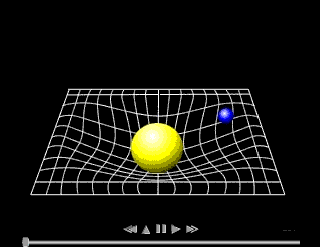
To understand the mechanism let us stretch a plain cloth holding it with its four corners and put a football on it. Now, we observe that the presence of the football causes the cloth to stretch downward. This is how mass curves space-time continuum. Now, if we throw a small ball near the football it will move around the football in a circular path for a short time (or forever if the real gravity was absent). This is how planets move around the sun. Thus, there is no absolute space. Rather it is twistable, malleable and it can even ripple.
As light in an accelerated frame of reference travels in a curved path, Einstein from his equations predicted that light must also deviate from its straight path in the presence of gravity which was successfully proved in a solar eclipse in 1919 when stars behind the sun became visible which was a straight proof of his theory.
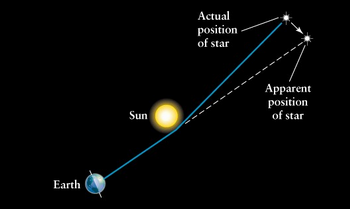
This theory predicted some bizarre never before cosmological phenomena like the existence of Black Holes, Gravitational Lensing, existence of Gravitational Waves etc.
A Black Hole is a dead star whose mass is more than three times the mass of sun. Such a star curves the space so much that it forms an infinitely deep hole in space. There is a region called the Event Horizon around the Black Hole from where nothing, even light can not escape and thus it looks black. Scientists claim that a supermassive black hole exists at the core of our Milky Way galaxy.
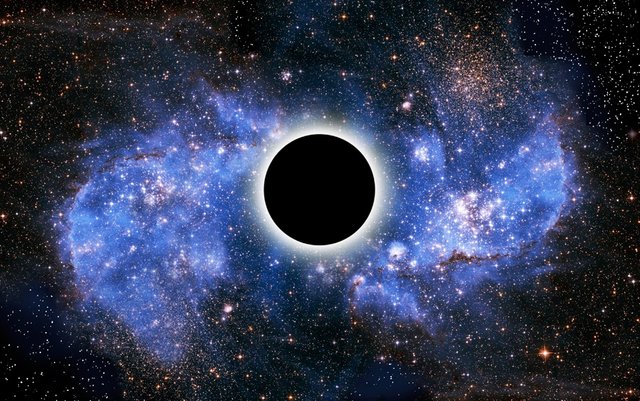
Gravitational lensing is the phenomenon where, as because light gets deviated from its straight path due to gravity of some stars, we get distorted or multiple images of the star.
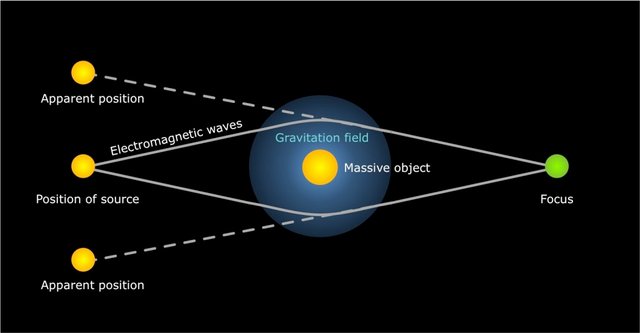
Gravitational waves are caused by some cosmological explosion like Novae and Supernovae. The Laser Interferometer Gravitational-Wave Observatory (LIGO) at Livingston, USA on 11th Feb, 2016 announced that they have detected the gravitational wave which was created during the merging of two black holes. For this achievement Rainer Weiss, Barry C. Barish and Kip S. Thorne was awarded the Nobel Prize in physics for the year 2017.
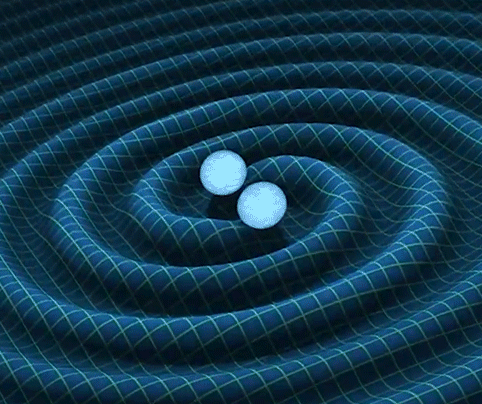
Einstein’s ideas totally transformed the face of earth and human perception about reality. Most of the modern discoveries like the Neutron Stars,Black Holes, Nuclear energy, LASER, GPS can’t be explained without using Einstein’s ideas. He also contributed substantially to the development of Quantum Mechanics. He developed the Bose-Einstein Statistics in Quantum Mechanics in collaboration with the Indian mathematician Satyendra Nath Bose. which helped in the discovery of the fifth state of matter called the Bose-Einstein Condensate. The particles which obey Bose-Einstein Statistics are called Bosons (e.g. light photon), named in the honor of Satyendra Nath Bose. However, Einstein opposed the probabilistic interpretation of reality in Quantum Mechanics .
Due to his mind blowing ideas he remains the greatest scientific hero of all time even after six decades of his death. He is worshiped by millions who love to rejoice the beauty in the laws of nature. A low profile patent clerk turned the greatest physicist of all times, he is really an inspirational figure in human history.
References :
- Gravity Probe B : Testing Einstein's Universe
- Press Release: The Nobel Prize in Physics 2017 by the Official Website of Nobel Prize
- Original Paper of Special Relativity
- A Documentary on Albert Einstein by the tv Channel History.com
- What is Space( Fabric of the Cosmos) by the tv Channel NOVA
- Various Textbooks
- Wikipedia
I hope you enjoyed learning about Albert Einstein. If you love dreaming and learning science then please follow me, @physics-o-mania
Don't Forget to Read My Previous Articles :
- Mohenjo-Daro : A 4000 Years Old but Modern City
- Mining The Lunar Surface : A New Race in Space
- The ITER Project: Future of Endless Clean Energy?
- ISRO : The New Glamor in Space Race
- The Quest for the Grand Unification : The Theory of Everything
- Why Does it Happen?
- The Hunt for the Dark Matter : The Unseen Neighbor
- Quantum Computers : A Threat to Bitcoin
- The Strange Face of Reality : The Quantum Realm
- Teleportation : The Ultimate Revolution in Transportation
If you are interested in various domains of science and mathematics then join the @steemstem project, team to support high quality STEM(Science,Technology, Engineering and Mathematics) related contents. Join them in steemit.chat to interact with the science authors from all over the world.
Thank you for reading my content!!

Cool guy
Yeah...indeed cool
Nyc Comment!!!
Well done @physics-o-mania - excellent paper.!!! There are many physicists over the last century who have done great things to expand our understanding of the natural world, however few achieved the prestige of Einstein - my personal favorite is Hisenburgh, and although not nearly as famous, the uncertainty principal is no less important to the modern era as E=MC2.
No single theory (before or since) has become so entrenched within our scientific paradigm as is relativity, and unfortunately I believe the future/history will likely show much of Einsteins theory(s) to at the least be "incomplete", and some aspects perhaps entirely "incorrect". Don't get me wrong - he's a "god" of men and in my top 5 greatest ever... However...
Even within Einsteins own writings, there was uncertainty (pun intended), and as he grew older he became so sure of his own genius that he even argued against quantum mechanics and proposed an alternate "hidden variable" theory to explain the "spooky action" inherent within quantum theory - unsuccessfully of course. Here we are 90 years later and quantum theory is the most successful and thoroughly tested scientific endeavor ever.
Einstein himself said about your example of gravitational lensing, that it was doubtful to ever be proven, and although he was the first to predict "dark energy", he almost immediately questioned its validity and referred to it as his greatest blunder.
As a student of all things "sciency", I have personally tried to wrap my head around why someone as brilliant as Einstein would be so unwilling to accept even his own assertions, and that extends to today's so called experts in general and special relativity - having this weird dichotomy where when considering the newest scientific discoveries of today, they are unwilling to change their perceptions with new developments - like Einstein and almost like the mysticism of the past - ie religion...
Yeah revision of the old theory is a science thing.We cannot and shouldn't stop it
😂😂 not me i hated physics in high school my favorite class was gym
haha😂😂
Interest matters...yeah
Fantastic work, extensively cited and beautifully written. A really nice look at some of the ways Einstein contributed to our understanding of physics, and how those ideas have lead to some things that we all use on almost a daily basis (GPS). Keep up the awesome posts @physics-o-mania!
I can only repeat everything that has been said above. This is a wonderful post about one of the fathers of modern physics. His work is used everyday, in this era :)
Thank you @lemouth for encouraging me.
Thanks @justtryme90 .more such contents on the way.
Hopefully next time you will credit your own blog when reposting from it. (Assuming this is you, and you didn't just take the content, as the name is the same)
http://physicsbyroshan.blogspot.gr/?m=1
Original steemit content should be more valuable then content from elsewhere.
Thank you @justtryme for advising. I'l take care about that next time. Hve to talk to you. Wts ur username in steemit.chat?
It's the same
okay...will be texting you soon
Great post on a great man!
Thank you
fantastic article, although Einstein ruined my high school and collage with his complex work, life i feel like he was a good man :)
Great work @physics-o-maniya
You done a fentastic detailed layout of the legend Einstein..Expecting more and more like this..the way you presented is very impressive with detailed graphic and video support.. keep it up..
Thank you
Great work
Thank you
Welcome my friend
Wow, such a great post. 😊😃
Yesterday you were talking about Einstein and you posted right away. Great work bro.
Keep the awesome content coming. Your future is bright on Steemit.😉
Don't know bro.have to work hard with patience. Thats the fundamental rule in Steemit
He is my hero; I love the fact that we are still proving his theories, it's like technology has to catch up with his gargantuan brain.
First we needed to wait for atomic clocks to prove the time dilation theory in the 70s. Right through to the LIGO telescopes recently.
I notice that every decade or so, somebody somewhere comes up with a hypothesis and attaches (or rather the media attaches) the strap line that "Einstein was wrong!"
The last time that happened was in the LHC when they thought c was being broken. I remember a friend of mine who knows I worship Einstein said to me; "have you heard? Einstein was wrong?!"
I sighed and said he wasn't; "but-but-but"
No he wasn't . . .
Of course the LHC was the thing that was wrong; how dare we think we can build tech that is smarter than Einstein was?! Lolz :-)
Nice article man, keep 'em coming!
Cg
Thats why he is "The Einstein"